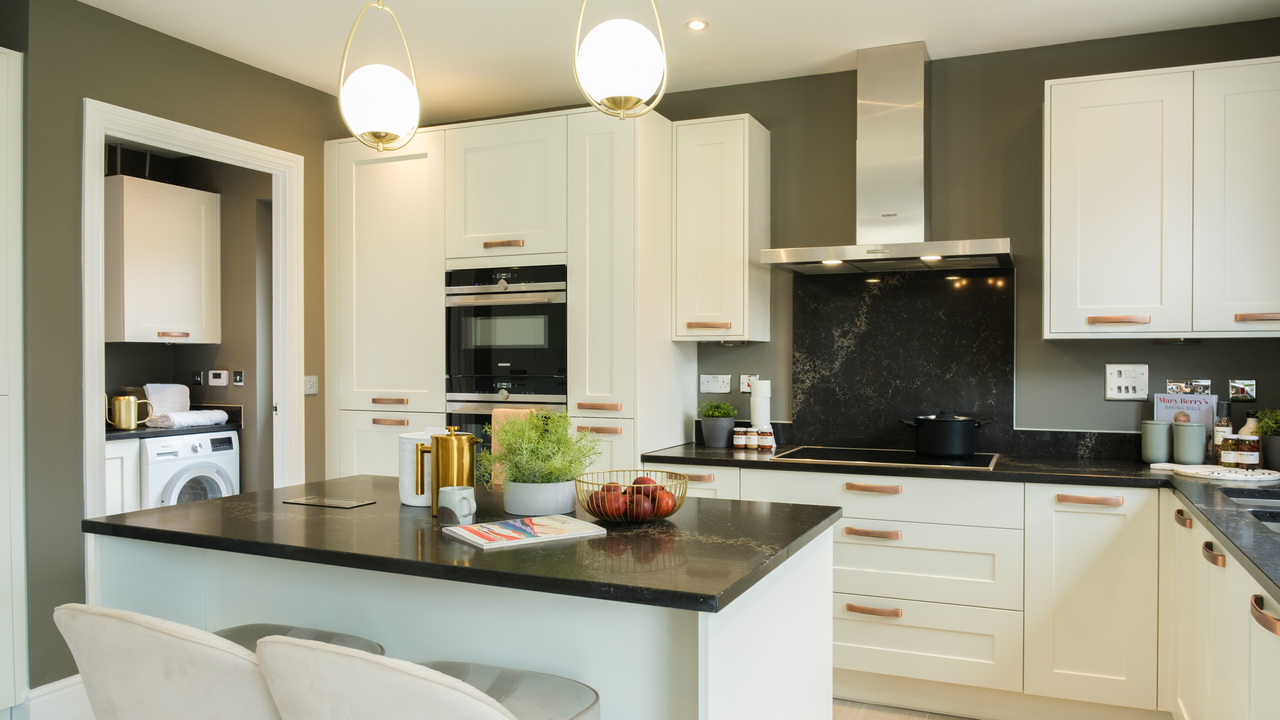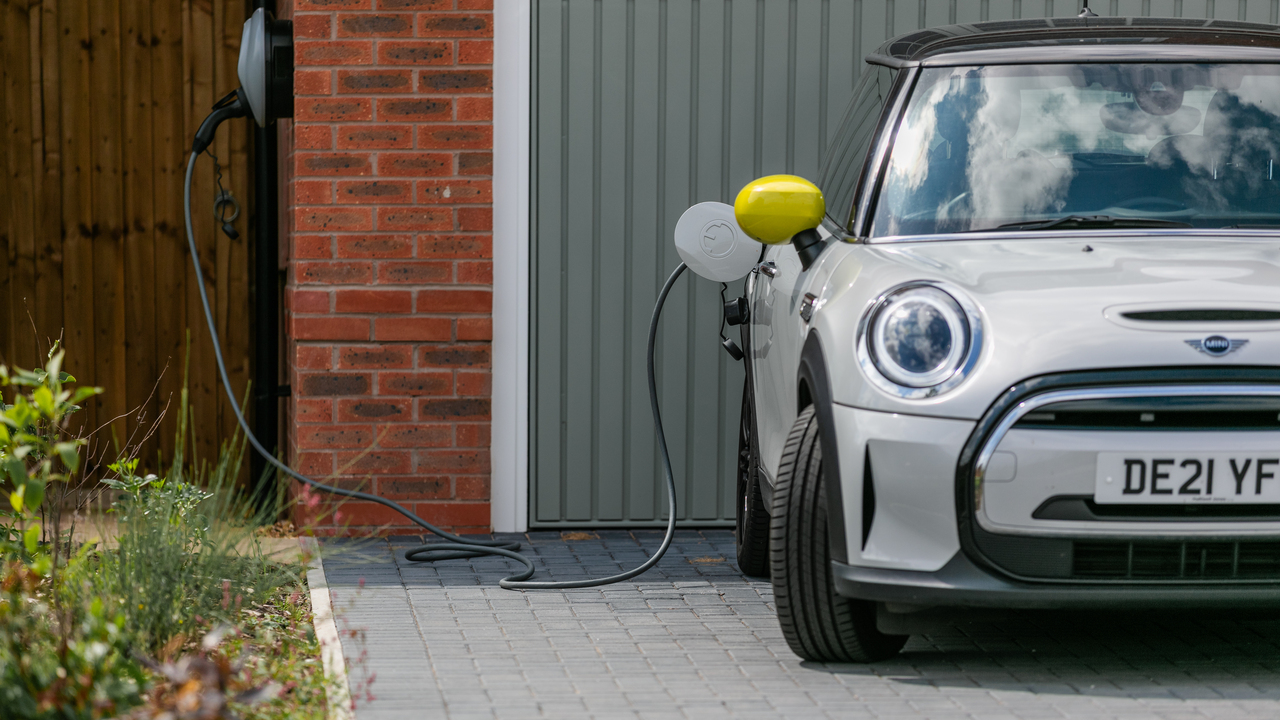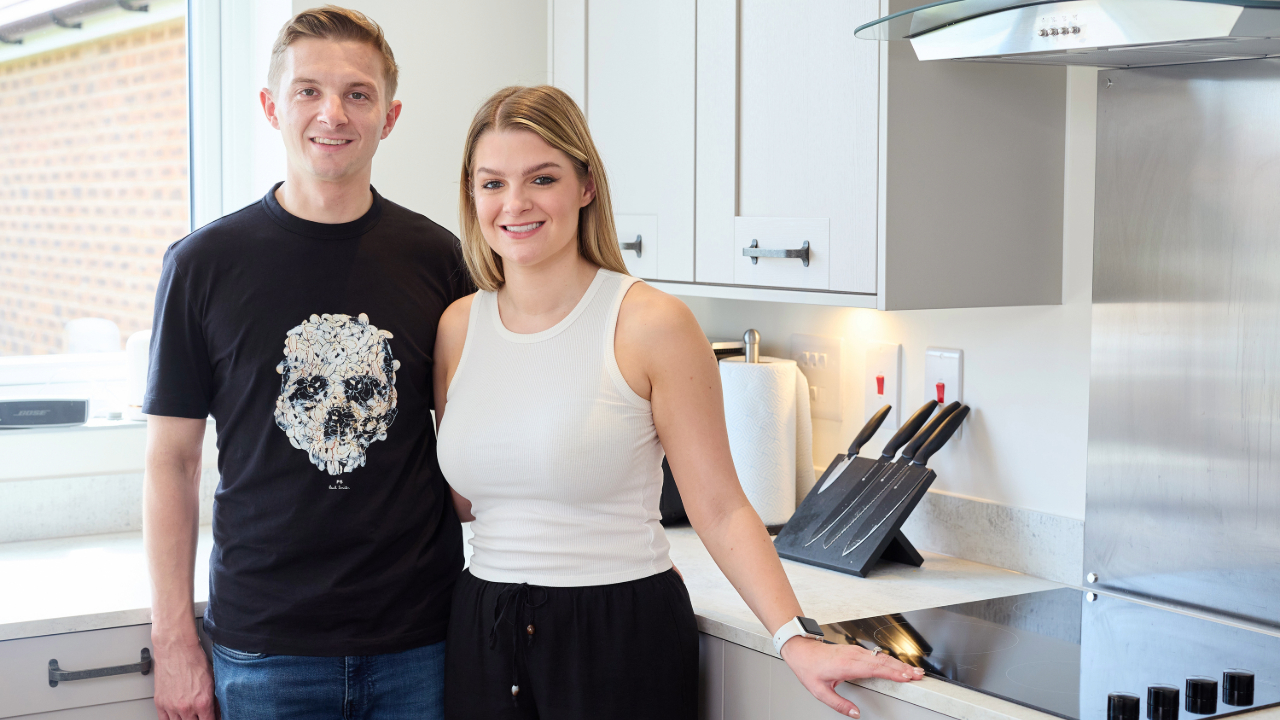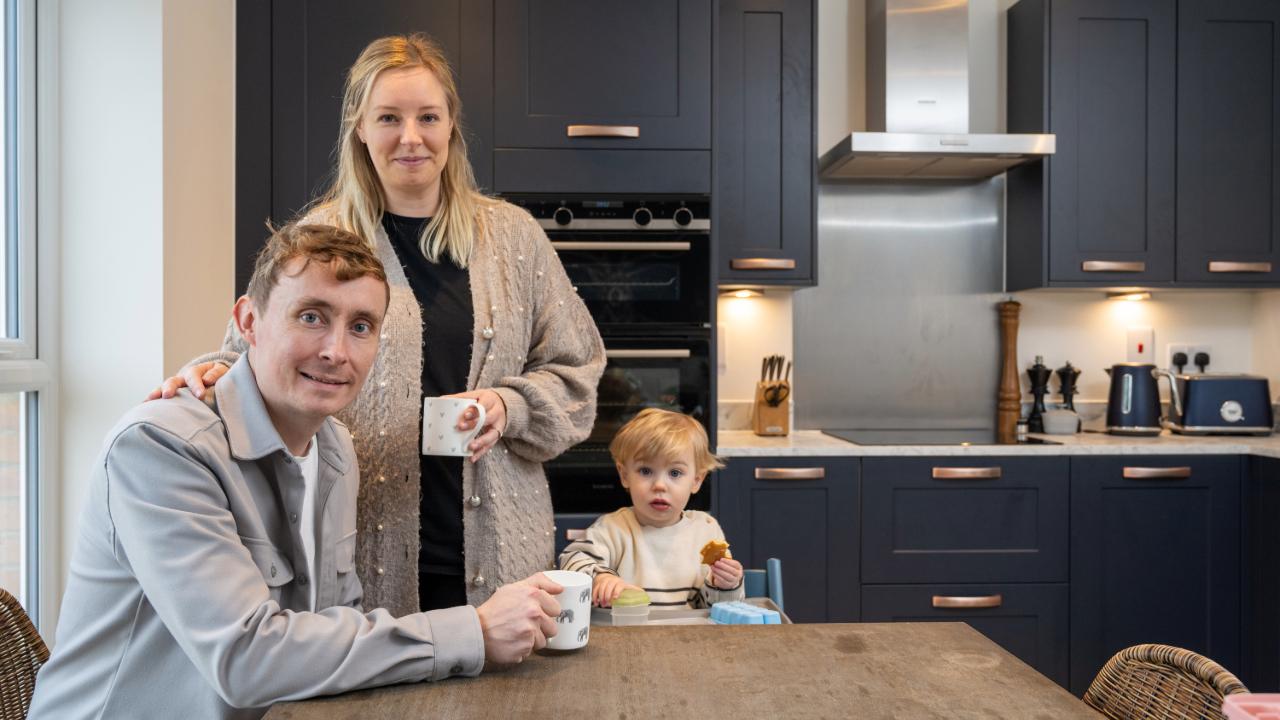
Cost of living pressures mean almost everyone is looking for the best ways to lower their energy bills. Our new homes are designed to be energy efficient, making them much more cost effective to run than older homes. We’ve also introduced air source heat pumps in place of traditional gas boilers on all new and upcoming developments to help buyers lower their household carbon emissions even further.
Latest figures from the HBF, suggest the average buyer of a new build house can more than £970 a year on their energy bills*.
Read on to discover our top energy saving tips and how to reduce energy bills.
Time to switch? – Five things you need to know
1. Know what you’re using
When you’re moving home, many suppliers will calculate available tariffs based on your previous consumption.

If you use a lot of energy, a plan with a fixed standing charge and a lower cost per unit of gas and electricity could work out more cost effective, but it wouldn’t be suitable if your household has lower energy consumption.
- If you can, use the kWh figure for your annual consumption, which is easy to find on your annual energy statement from your energy provider.
- If you can’t find that, you’ll be able to get a reasonably accurate quote by using figures from your monthly or quarterly energy bills too. If your new home is bigger than where you’re living currently, your energy bills may be more expensive, which you’d need to allow for in your household budget.
2. Check your tariff
Each utility supplier will offer a range of tariffs, which will include different rates and terms.
- With a flexible or variable tariff, the price you pay per unit of energy is linked to the wholesale price of gas and electricity and the energy price cap, which sets a limit on what utilities providers can charge. Your energy supplier will usually give you 30 days’ notice before prices change, helping you budget.
- Alternatively, a fixed rate tariff, which locks in the price for a set period, could work out as the cheapest option. However, you could find that if the rate drops, you’re overpaying for your energy.
- Environmentally friendly tariffs are available for those who prefer to use clean energy.
3. Direct debit v quarterly bills
With a monthly direct debit for your gas and electricity services you can budget easily without the worry of forgetting to pay the bills.
- This can mean you build up credit over the warmer, lighter summer months when you’re not using as much gas and electricity.
- Or, if you prefer to pay for what you consume, a quarterly bill from your provider could be for you.
4. Compare energy providers before you choose your tariff
In some cases, you may find that you’re able to source your gas and electricity from the same company. This can make it easier as you’ll have fewer household bills to deal with, although you may find that you’ll get a better deal if you ‘mix and match’ providers.
- Comparison websites can help you see at a glance how much your bills are likely to be with different providers to help you decide.
- Remember to consider when the energy price cap is due to change before you lock in with a supplier. The level of the energy price cap is based on typical household energy use and paying by direct debit.
5. Book an appointment at your nearest Redrow development
Use our Energy Performance Certificate (EPC) calculator to discover how much you could save by switching from your existing property to an energy efficient new Redrow home. Our new homes are among the most efficient available, achieving EPC ratings of A or B. For more information about what is an EPC certificate, read our guide.
If you’re wondering what size of home will suit your needs and lower your energy bills, read our guide to rightsizing v downsizing.
Four tips to reduce your use
New homes are highly energy efficient, with our Eco Electric homes including air source heat pumps, thicker insulation and underfloor heating, helping lower household bills.

With some small lifestyle changes you could reduced your energy consumption and bills even further.
1. Turn the thermostat down
Turning your thermostat down by just 10-15% for eight hours a day can lower your annual heating bills by up to 10%. Reduce your boiler flow temperature to 75°C (or even 65°C in summer) to save energy instead of the standard 80°C.
2. Lower your hot water temperature
Reduce the cost of hot water by setting your water heater to 54°C instead of the standard 60°C. Instead of a long soak in a deep-filled bath, take a shower and shorten the time you’re in the shower with the water running. This could also help reduce your water bill, along with your energy bills. Read our guide to daily ways to save water at home.
3. Be appliance savvy
Only run the washing machine or dishwasher with a full load – or choose a part load programme, if available. Appliances in Redrow homes are A-rated and above. Dry your laundry outside or use a heated clothes airer instead of the tumble dryer. If you have no option but to use a tumble dryer, experts say adding a dry towel in with your wet load can speed up drying times.
4. Cook smart
Cover pans with lids and only use enough water to cover the food you’re cooking. Consider using other appliances to cook other than the oven such as an air fryer, slow cooker or microwave.
You can find out more about the small changes you can make that have a big impact on the planet with our top tips for a sustainable home.
Putting our energy into new technology
Our homes are already among the most efficient available and we’ve been developing ways to make them even more so.

- Air source heat pumps. We’re pioneering the use of air source heat pumps as a sustainable alternative to gas boilers in our Eco Electric homes, available as standard on all new and upcoming developments. Helping ensure your home is future-ready, these include underfloor heating on the ground floor.
- PV panels built into the roof of your home should mean lower electricity bills, with the potential to receive payments if you generate more energy than you use. You can add these to your home by speaking to a sales advisors at the development who can help you personalise your property with extras and upgrades.
- EV charging points are included on many of our homes, providing our homeowners with facilities to charge their electric vehicles and reduce their reliance on petrol or diesel.
- Eco-friendly upgrades are available including adding an eco-waste bin or steaming hot tap.
Rated for energy & by our homeowners
The average UK property has an EPC rating of D, but our homes are much more efficient, achieving a B rating – some an A, which is the highest rating available.
The efficiency of our homes makes them eligible for green mortgages, which tend to offer more favourable interest rates, helping lower household bills further. Choosing the right mortgage for you is simple thanks to our easy to follow guide.
Many of our homeowners have discovered their new build utility bills are lower.
After deciding another renovation project was off the cards, Sam and Niamh found a new energy efficient home in Cheshire was their perfect match.

They longed to move to a detached home after finishing a tiring home renovation on their semi-detached property in nearby Great Sutton.
Being familiar with the area and having friends close by, our new homes at Ledsham Garden Village were an ideal fit – offering the character they craved with the convenience they needed, including underfloor heating and a highly efficient air source heat pump in place of a gas boiler.
The couple’s home is one of our Eco Electric range meaning it is gas-free and has an air source heat pump to provide heating and hot water. Sam, a maintenance technician at an oil refinery, said: “It is a massive change to our last home where we had a gas boiler, fire and hob but we were open to the idea of the heat pump. I’m looking forward to seeing our energy bills be much less than what we’ve been paying.”
The couple chose a four-bedroom detached Shaftesbury after saying the sheer size of the property wowed them.
Niamh, a health visitor, said: “It has more living space, the bedrooms are such good sizes and we loved elements such as the size of the windows – they let in so much natural light.”
Celene and her husband, William, moved into their first new-build home, a three-bedroom Letchworth, in Bedfordshire in November 2023, after previously living in a grade one period property. With a busy lifestyle and an active toddler, the couple were keen for their first home to be a new build, so they could benefit from a smooth and stress-free move.

After visiting Stone Hill Meadow in Bedfordshire and experiencing the Redrow difference first-hand, the couple were immediately sold on the Letchworth, which forms part of our award-winning Heritage Collection.
Their new home has a host of energy efficient features to help them save on their household bills.
“We were so excited to move into a property with an air source heat pump that had an underfloor heating system, especially after living in a grade one listed property which was not energy efficient at all,” Celene recalled.
“We had seen so much about heat pumps in the news and knew we wanted a property with one to future-proof our home. They are the future, after all.
“Going from a period property to a new build with an air source heat pump has been like going from one extreme to another. Not only is it considerably cheaper to heat our home, but we also don’t need to look at any unsightly radiators – plus our feet stay toasty on frosty, winter mornings with the underfloor heating.”
Discover how we’re using air source heat pumps to boost energy efficiency.
With our guide to a sustainable house move you can reduce your impact on the planet even before moving day.
Find a Redrow development near you today.
*Research by the HBF, based on EPC ratings, suggests that buyers of new build houses could save over £970 on their annual energy billsSource: HBF “Watt a Save report” published October 2024, last updated: January 2025.


